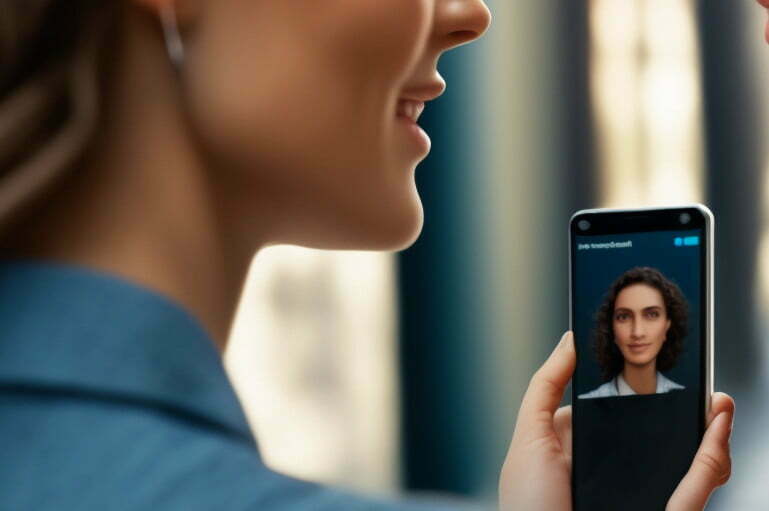Eva had always wanted a personal assistant who could help her manage her daily life. And when Alter arrived in 20281, she didn't miss the opportunity to have a personal artificial intelligence for anything in the world, even if the subscription price was a little high for her possibilities.
After installing the AI on her personal device, Eva began the learning period. Alter started scanning all her documents, her phone calls, her phone conversations, her geographic location. Properly trained by Eva, she also learned about personal observations, work schedules, culinary preferences and daily routines. Until, after about six days, he started suggesting a more balanced diet and organizing appointments for her, so that Eva could dedicate herself to what she liked most: painting.
The birth of “a friendship”
Far away from the beginning of the early 20s, personal AI doesn't just interpret language and respond in kind. Indeed, it also manifests other soft skills in a very effective way. Show robust doses of empathy, irony, talkativeness. With the user's permission it is also proactive, and intervenes to suggest things and activities when it finds repeating patterns in the user's life. At times Alter gave excellent advice on what clothes to wear. Other times, she went so far as to give Eva tips on how to respond to an intrusive admirer. A kind of “friend” who knows everything, a bit like in that old Spike Jonze movie, Her, which anticipated things a bit in the early 2000s.
But it wasn't all sunshine and roses. Today, 4 years have passed since the beginning of this “relationship” between Eva and Alter, and there have also been situations in which Eva felt uncomfortable. For example, when she noticed that the AI had saved some of her private conversations, she felt her privacy had been violated. Or when she discovered that the AI had also recorded some tense moments during her calls with her ex-partner, which made her feel very vulnerable.

It's not the only personal AI that creates headaches
A few years ago it was expected that increasingly advanced artificial intelligence would constitute the "perfect" assistant, capable of understanding everything and solving all sorts of problems. In reality, the evolution of artificial intelligence has also shown traits of what, if we didn't know they were machines, we would call "personality". The more Alter's presence enters aspects considered "personal" and intimate of a user's life, the more friction there is.
Not everyone is enthusiastic about it. Sarah, for example. One of Eva's friends, who had had many difficulties with her personal AI and, due to real misunderstandings, had decided to abandon her and unsubscribe from Alter. A decision that had disastrous consequences on her career. Sara was a successful businesswoman and needed a reliable personal assistant to manage her affairs. When she decided to abandon AI, she discovered that without her Alter she could no longer keep up with the work, and she started losing clients.
She's not the only one to express concerns. After the last decade full of enthusiasm about this technology, society in the 30s began to reflect on the risks associated with using a personal artificial intelligence and wondered whether it had made the right choice to rely completely on this technology. Many fear that their AI personal assistant could somehow evolve and take control of their life.
What will the next few years be like?
It's not easy to say: the evolution of these systems is proceeding quickly, and many are wondering if future integration with robotics will give us real "physical subjects" with their own personality. How will we interact with them? Who tells us that they will always be ready to listen to us or help us?
Despite everything, Eva continued to use Alter, but decided to keep a careful eye on his movements and not become too dependent. Sure, her personal AI has had a significant impact on her life, helping her better manage her daily tasks and focus on her passions. However, you also raised some concerns about privacy and dependency on this technology.
As a society, we will need to find a balance between the benefits and risks of using this technology. Years ago, we feared that these artificial intelligences could replace us. Now, perhaps, we have the opposite problem: we are too happy to have been replaced, and we try to understand if there is still something we want to do on our own, without their help.
1 - Name of a hypothetical personal AI service. “Alter”, from Latin, means “other, different”, to underline the differences between a human being and a machine, beyond all the apparent similarities.


